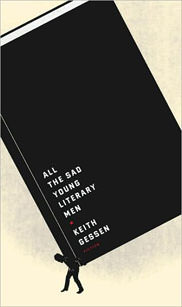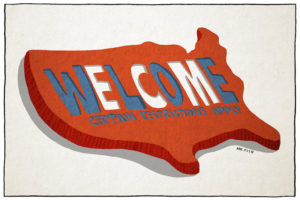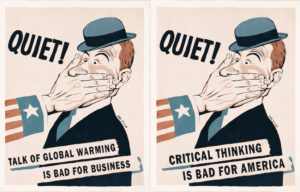Ellen Garrison on ‘All the Sad Young Literary Men’
Are Keith Gessen and his posse really the voice of the Zeitgeist, the intellectual heirs to Norman Mailer and George Plimpton? Or just the highbrow version of Judd Apatow?
What might one hope for from a novel entitled “All the Sad Young Literary Men”? Not modesty, for certain, and not subtlety. The title is a nod to that saddest and most literary of young men, F. Scott Fitzgerald (“All the Sad Young Men” was a story collection that followed up “The Great Gatsby”), which should give you some idea of the book’s opinion of itself. Perhaps it is unfair to hold Keith Gessen’s literary debut to such exalted standards, or to expect it to overwhelm any flaws with the sheer power of great writing. But given the pedigree of the author — Gessen is co-founder of the literary magazine N+1 and a translator of Russian literature — one could reasonably expect this to be a novel that, like a shortish, bespectacled guy hanging around the bar at an N+1 fundraising party, might at least be funny.
But the novel is not funny, and it is not brave. (Nor, strictly speaking, is it a novel — it’s a collection of loosely linked short stories.) Bravery might seem like an inappropriate, even anachronistic demand to make of Mark, Keith and Sam, the young men who flounder through these pages in search of themselves. They are Ivy League seekers, sons of immigrants and revolutionaries who braved everything to ensure that their boys need not. But it takes a lot of courage to write a good satire — to see it through and resist the temptation to be likable — and bravery is required of any seeker, to leave the comfort of the superego and face the world head-on. Gessen’s morose and flaccid young men, however, are content to analyze their own failings with all the earnest scrutiny of college sophomores in a writing seminar (albeit a Harvard writing seminar), grasping at their straw women in desperation.
In each of these 10 stories the young man in question attempts to unravel his complicated desires with the help of his favorite historical or political obsession (Keith finds the electoral politics of fin-de-millennium America to be a useful prism; Mark prefers the Russian revolution, Sam the Israeli-Palestinian conflict). After 211 pages of this, Mark ruefully acknowledges that “ultimately these historical parallels were of limited use in figuring out your personal life.” But even then it doesn’t stop.
The device is mildly amusing the first time you encounter it, and for most readers that will have been in a freshman comp class when they were assigned “IND AFF, or Out of Love in Sarajevo,” by Fay Weldon. That short story, beloved by English professors everywhere, is a shining example of clean writing, sharp wit that does not spare the protagonist, and a deployment of history as metaphor that neither reduces the significance of one event (in this case, the assassination of Archduke Ferdinand) nor hilariously overstates the importance of the other (the dissolution of a tawdry affair). Unfortunately Gessen’s homage does not quite live up to Weldon’s original.
But then, “IND AFF” is narrated (and written) by a woman, and here we come to the kind of criticism most commonly dispensed with in a sentence clause. The New York Times Book Review, for example, notes that “the three men are attached to one another through slightly too faceless girls and slightly too famous universities, but. …” With a title like that, after all, can we really expect girls with faces? The book is not meant to be about sad young literary women. (As Gessen’s friend Emily Gould sarcastically asked in her blog, what would be the point?) Standards for such things have fallen so low that in her recent laudatory review Joyce Carol Oates is delighted to find that the women in these stories “are never presented as anything less than the equals of their male lovers and companions.” True enough — in fact they far exceed the boys in all areas pertaining to adulthood: Jillian reconsiders her English major at Harvard and proceeds to med school; Katie outgrows her fluffy sex-advice column and reveals her career ambitions in a diary left carelessly lying about; moody Celeste grows up and sticks to her meds even though they interfere with her (or more pertinently, Mark’s) sex life; Arielle, the slutty one, will not be the other woman forever. These women get things done: They call the boys on their bullshit, they don’t sit around moping and they don’t draw up elaborate historical metaphors to explain their sex lives. And though you might think on a cursory first reading that the problem with Sad Young Literary Men is that they are shallow and absurd, in fact, the problem is that their women are not. They can’t be, if Gessen’s men have any hope of finding themselves. The women are their world, and the world is against them. “She was perfectly conventional,” we’re told of one, “a lifetime of television compressed into a few perfect gestures, and nothing could have been more devastating for a man whose life was as strange and unlikely as Sam’s.” The sad devastation is necessary though: Could Sam’s life be nearly so strange and so unlikely without someone there to be conventional in comparison? These women, like the disappointing elders who pop up here and there to wound the boys with their hypocrisy, have no way of understanding what it is to be sad, or literary, or young. This kind of knee-jerk reversion to caricature is all the more frustrating because it is so clearly a mark of laziness, not stupidity. Gessen is fully capable of illuminating the interior lives of even tertiary characters in a few sentences, as he demonstrates in the best of these, “Jenin,” which follows Sam to the occupied territories in Israel. There he meets Akhmed, a young Palestinian teacher who is happy to give this dazed American a chance to see some real Israeli tanks, though neither he nor his friends seem to realize that Sam is Jewish. Sam’s confused politics and his hazy sense of himself are jolted awake by the banal realities of ethnic hatred, and his self-consciousness as a Jew among Arabs sharpens so much that when at last he does reveal himself to Akhmed, he fully expects an angry confrontation to follow. Instead, in a few honest and movingly written paragraphs Akhmed becomes sympathetically human, instead of a symbol: “Akhmed himself would never hurt anyone. In another life he would have been a professor, or a teacher — why, he was a teacher in this life. Perhaps what Sam meant was that in another life Akhmed would have been a Jewish teacher.” That recognition of kinship is what allows Sam to figure out who he is, while in the hands of a lesser writer his self-discovery would inevitably come at the expense of some noble or despicable other.
It seems bizarre then that the same courtesy is not extended to the love interests. There is no moment of recognition for the women that matches the tenderness and humor that Sam and Akhmed share. Instead they function as little more than plot devices, shaking their heads over their boyfriends’ antics, building up equity and generating guilt. Feckless Sam is dumped by women exasperated by his obsessions, and Keith moves from one morose and disappointed girlfriend to another until he is rescued by 22-year-old Gwyn, the most faceless girl of all. Poor Mark is plagued for a time by women his own age: Captivating Celeste refuses to commit to him because, like “every woman,” she has a boyfriend; in despair he settles for a fellow grad student who wears too much makeup and won’t sleep with him till he commits — and then Celeste calls! It’s like “Friends” would be if everyone had moved to Syracuse and run out of Zoloft. Somehow our hero pulls through and winds up with Celeste in Brooklyn, but there he discovers that she is no longer young, no longer happy. He isn’t either, of course, but it looks better on him. Gessen doesn’t argue this truism of post-Bradshaw philosophy, but he shines a new and penetrating light on just how difficult it is to be a late-blooming male when the woman across the table from you is nearly 30 and sees you, “of all people,” as “her last chance at something, before she crossed into a different phase of life.” This burdensome tendency of women to rely so heavily on their menfolk to spur life-changes (“Women did not leave their men for nothing — they left them for other men”) is taken to a ludicrous extreme in the final story, when sweet young Gwyn is (spoiler!) impregnated by Keith, and tells him “we’ll do whatever you want.” Keith decides to keep the baby, in his boyishly idealistic way, “in order to ensure a permanent left majority.” After all their political struggles and onanistic philosophizing, the boys seem to shrivel up at the thought of a figure more foreign than any rock-throwing radical: a complicated woman.
Keith Gessen and his cohorts are being strenuously marketed as the voice of the zeitgeist, the intellectual heirs of Mailer and Plimpton — or the highbrow version of Judd Apatow. With any luck it won’t take. He may share their self-regard and their peculiar blind spot when it comes to investigations into the human condition, but since he doesn’t have their energy, charm or humor (respectively), perhaps we won’t have to take him quite so seriously. Still, his work (and Apatow’s, as Meghan O’Rourke has pointed out in Slate) portends something ominous and annoying about this new generation of culture makers. At least Fitzgerald’s girls were as crazy and depressed as his boys; these sad young men are reaching all the way back to John Ruskin and his “angel in the house,” that paragon of virtue and domesticity who was doomed to show up the interesting, exciting lives of men, in order to make some kind of point about modern adulthood. At best it’s a sign that literary imagination is a rare and elusive thing not bound by the rules of evolution; at worst, it suggests that we are now living in a culture that applies the rule of scarcity to self-realization: Its worth to some is dependent on its unavailability to others.
Ellen Garrison, a former associate editor at Viking, is a freelance editor living in Brooklyn.
Your support matters…Independent journalism is under threat and overshadowed by heavily funded mainstream media.
You can help level the playing field. Become a member.
Your tax-deductible contribution keeps us digging beneath the headlines to give you thought-provoking, investigative reporting and analysis that unearths what's really happening- without compromise.
Give today to support our courageous, independent journalists.






You need to be a supporter to comment.
There are currently no responses to this article.
Be the first to respond.